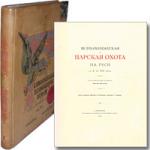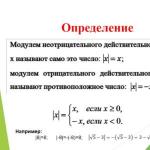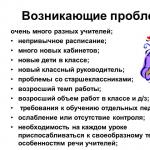“Here is the Tail Patron,
Here is a servile soul,
Enlightenment destroyer,
Patron of Bantysh!
Push, for God's sake,
At him from all sides!
Should I try it from behind?
He’s weakest there.”
This is how Alexander Pushkin ridiculed in his epigram one of the most famous court bachelors during the reign of Alexander I - Alexander Nikolaevich Golitsyn. The attitude towards this statesman in society was ambiguous. Some contemporaries noted his sharp mind, others reproached him for his passion for mystical religious movements, and others hinted at ambiguous connections with men.
“Raised at court and only for the court,” as Count Fyodor Tolstoy wrote about him, Golitsyn enjoyed the patronage of the emperor for many years and was considered his main confidant.
On the anniversary of the death of the Minister of Public Education, the site recalls the contribution to history he left behind.
"Cheerful and sharp" boy
In Moscow, on December 19, 1773, a son, Alexander, was born into the family of the captain of the guard, Prince Nikolai Golitsyn. But the father did not have a chance to hold the baby in his arms: he died a few days after the birth of the heir. Having become a widow at an early age, Alexandra Khitrovo married for the second time, connecting her life with a retired major. She treated her first-born rather coldly, not surrounding him with care and maternal love. However, the boy aroused the sympathy of Marya Savvishna Perekusikhina, a close friend of Empress Catherine II. The court lady began to take care of the “cheerful and sharp” child, which played a key role in his fate. At the age of 10, under her patronage, he was enrolled in the Corps of Pages, which was considered the most prestigious educational institution Russian Empire.
Alexander Golitsyn. Photo: Commons.wikimedia.org
The active boy often took part in the games of the Grand Dukes Alexander and Constantine, the Empress’s grandchildren. Friendship with one of them lasted a lifetime and did not stop even when Golitsyn was expelled from St. Petersburg by order of Paul I, and his namesake ascended the throne as the new emperor.
After Paul's assassination on the night of March 12, 1801, his son Alexander ascended the throne. While in power, he did not forget his childhood friend, soon appointing him chief prosecutor of the first and later third departments of the Senate.
Golitsyn's career was rapidly going uphill. At the age of 29, he rose to the position of Chief Prosecutor of the Holy Synod. And at the age of 43 he became the Minister of Public Education.
"Baby" in the work of faith"
Contemporaries recalled that over the years, a serious change took place in Golitsyn, who was known as a pleasant conversationalist. He became interested in religious movements, believed in miracles and “chased after prophets.”
Grand Duke Nikolai Mikhailovich in one of his memoirs described this period of his life as follows:
“This “baby” was constantly deceived in the matter of faith by various bigots and fanatics; he was looking for the “outpouring of the Holy Spirit” and revelations, he was always chasing prophets and prophetesses, after signs and wonders: he either “listened to the prophetic word” from the Khlystyvka Tatarinova, then he longed for the laying on of the hand of the new Chrysostom Photius, then he healed the possessed, then he was rewarded with mystical ecstasy experience the likeness of the Savior’s suffering from the needles of a thorn leaf.”
Alexander Golitsyn also fascinated Emperor Alexander I with reading the pages of the Apocalypse. Golitsyn, according to historians, was greatly influenced by Rodion Koshelev, who served as envoy extraordinary and minister plenipotentiary in Denmark under Paul I. The three of them often prayed together and discussed religious issues. In 1813, Koshelev and Golitsyn even created the Bible Society, the purpose of which was to distribute and translate the Bible throughout the Russian Empire.

Alexander became interested in religion during Napoleon's invasion of Russia. Photo: Commons.wikimedia.org
There are memories of what Alexander Nikolaevich’s house church looked like, where the emperor sometimes prayed with the prince.
At the foot of a huge wooden cross there was a semblance of a coffin covered with a shroud. They were lying on it different kinds crosses that were presented to him at different times.
“In front of the coffin, instead of a chandelier, there is an image of a human heart made of crimson glass, and in this heart an unquenchable fire glows,” recalled people close to him.
Church conspiracy
The emperor's fascination with exotic movements in Christianity alarmed the representatives Orthodox Church, who managed to enlist the support of another influential nobleman - Alexei Arakcheev.
In Koshelev they saw a “court caresser”, and in Golitsyn - a person who completely fell under his influence.
“This cunning nobleman, an empty-headed man, a hypocrite, a court caresser, having taken into his hands the Minister of Spiritual Affairs and Public Education, Prince Golitsyn, more than anyone else in his time did harm and evil to the Orthodox Church and the clergy,” his contemporary Archimandrite wrote about Rodion Alexandrovich Photius.
Alexey Arakcheev, Metropolitan Seraphim and Archimandrite Photius took part in the intrigue against the court lovers of mysticism. They tried in every possible way to weaken their influence on the emperor, convincing him that Golitsyn’s administration was having a detrimental effect on the church and state affairs.
The story was resolved in May 1824, when Alexander Nikolaevich resigned, retaining only the title of commander-in-chief of the postal department.
A year later, the emperor was gone. At the age of 47, Alexander I died of fever in Taganrog.

House of Prince Golitsyn on Fontanka, 20. Photo: Commons.wikimedia.org / A.Savin
In the last years of his life, Golitsyn complained of deteriorating vision. After leaving St. Petersburg, he went to his Gaspra estate in Crimea, where he died on December 4, 1844.
1) S.Yu. Witte;
2) K.P. Pobedonostsev;
3) P.A. Stolypin;
4) A.A. Arakcheev.
10. The manifesto of February 19, 1861 on the abolition of serfdom and the “Regulations on peasants emerging from serfdom” was signed by:
1) Alexander I;
2) Nicholas I;
3) Alexander II;
4) Nicholas II.
A) civil rights
b) status of free rural inhabitants
12. Indicate what type of document determined the size of peasant plots and duties in favor of the landowner:
a) an agreement between landowners and peasants, recorded in the charter
b) contractual obligation of the landowner
c) contractual obligations of the peasant community
d) an agreement between the peasant community and the landowner
13. What was the positive role of zemstvos?
a) contributed to the development of education and health care
b) contributed to improving the life of the village
c) were the beginnings of parliamentarism
d) were the beginnings of civil society
14. Based on the urban reform, a new form of urban self-government was introduced:
a) administrative body – City Duma
b) executive body – City Duma
c) administrative body - city government
d) executive body – city government
15. Basic principles of judicial reform of 1864:
a) independence of judges from the administration
b) the obligation of the prosecution and defense to be adversarial
c) lack of class
d) closedness trials
16. Military reform introduced the principle
a) all-class military service
b) electability command staff
c) universal conscription
d) competitiveness
17. According to the peasant reform of 1861:
a) peasants received the right to leave the community
b) peasants could get less land and worse quality than they had before
c) the amount of ransom for the personal liberation of a peasant was determined only by the landowner
d) the size of the peasant plot was determined according to the uniform norm for Russia of one tithe per family
18. Meaning Battle of Stalingrad
a) a radical change began during the Second World War
b) the myth of invincibility was dispelled German army
c) there was a complete demoralization of the enemy troops
d) German troops stopped conducting offensive operations
19. The turning point during the Second World War has ended
a) the battle for the Dnieper
d) the operation of Soviet troops “Bagration” in Belarus
20. Main meaning Battle of Kursk:
a) a start has been made anti-Hitler coalition
c) the transfer of strategic initiative into the hands of the Soviet command was secured
d) the enemy switched to defensive actions along the entire Soviet-German front
21. At the Tehran Conference in 1943, the following decisions were made:
a) the entry of the USSR into the war with Japan
b) about the Allied landings in the Balkans
c) about the opening of a second front in northern France
d) about the landing of Soviet units in Normandy
e) on recognition of the USSR’s right to a part East Prussia
f) about post-war cooperation
22. The occupation regime is...
a) a regime of terror and violence established in the occupied territory
b) declaration of a state of emergency
c) sending troops into a particular territory to maintain order
d) policy of physical violence
23. Types guerrilla warfare on the territory of the USSR:
a) destruction of communication lines, roads, bridges
b) rail war
c) purely intelligence work
d) sabotage work in concentration camps
24. All over Europe were created concentration camps, the largest of them:
26. Indicate the reasons why the USSR and the USA switched to a policy of détente:
a) creation in the USSR hydrogen bomb
b) US failures in the Vietnam War
c) exacerbation of the Soviet-Chinese conflict
G) bad influence arms race on economic development superpowers
27. What reasons contributed to the end of detente?
a) deployment of Soviet nuclear missiles in Cuba
b) deployment of medium-range missiles in Europe
c) the fall of the Shah's regime in Iran, the rise to power of a Muslim nationalist government
d) conflict between the USSR and the USA in Korea
28. The main reasons that caused a sharp increase in international tension in the late 70s - early 80s:
a) the USSR providing assistance to Vietnam in the war with the USA
b) the introduction of Soviet troops into Afghanistan
c) US development of the Star Wars program
d) the beginning of perestroika in the USSR
29. Soviet troops were introduced into Afghanistan.
Arakcheev Alexey Andreevich Arakcheev Alexey Andreevich
(1769-1834), count (1799), Russian statesman and military leader, artillery general (1807). In 1808-1810, the Minister of War carried out a number of reforms in the army, reorganized the artillery; in 1810-1812 and 1816-1826 chairman of the Department of Military Affairs of the State Council. In 1815-1825, the most trusted confidant of Emperor Alexander I, a zealous conductor of his domestic policy; organizer and chief commander of military settlements. In 1818 he participated in the development of a project for the liberation of peasants.
ARACCHEEEV Alexey AndreevichARACCHEEV Alexey Andreevich (September 23 (October 4), 1769, Tver province, Novgorod province - April 21 (May 3), 1834, village of Gruzino, Tikhvin district, Novgorod province), Russian statesman and military leader, count (1799), artillery general (1807) ; Minister of War (1808-1810), reorganized the artillery; Chairman of the Department of Military Affairs of the State Council (since 1810). In 1815-1825, Arakcheev was a confidant of Emperor Alexander I Pavlovich (cm. ALEXANDER I Pavlovich), carried out its internal policy; was the organizer and chief commander of military settlements.
Arakcheev came from a poor noble family. From childhood, he was accustomed to strict discipline, hard work, frugality, and scrupulous observance of religious rituals. In 1783, Arakcheev was accepted into the Gentile Artillery and Engineering (later the Second Cadet) Corps, where he showed ability in mathematics. After graduating from the corps (1787) with the rank of army lieutenant, he was left there as a teacher of arithmetic, geometry and artillery; He was also in charge of the building library. In 1788-1790, during the Russian-Swedish war, Arakcheev trained recruits in artillery. In 1790, on the recommendation of the director of the corps, he became a tutor in the family of the President of the Military Collegium N.I. Saltykov, not without whose assistance in 1792 he was accepted into the Gatchina troops by the heir to the throne, Grand Duke Pavel Petrovich (future Emperor Paul I). Arakcheev implemented the “Prussian” principles of military education that prevailed there with pedantry and cruelty. Behind short term he brought the Gatchina artillery into exemplary order, was appointed inspector not only of artillery, but also of infantry, and began to manage the economic unit. In July 1796, Arakcheev was promoted to the rank of colonel.
With his diligence and personal devotion, he gained the trust of Pavel. After his accession, Arakcheev was promoted to major general and appointed commandant of St. Petersburg. He was granted a rich estate in the Novgorod province - the only gift he accepted during his entire service. In April 1797, Arakcheev was appointed commander of the Life Guards Preobrazhensky Regiment, placed at the head of the emperor's retinue with the appointment of quartermaster general of the entire Russian army and chief of the General Staff. In January 1798 he was also appointed inspector of all Russian artillery. Arakcheev contributed greatly to strengthening the combat effectiveness of the troops and establishing order in the army, which was accompanied by the introduction of stick drill, especially in the guard. At court, he kept himself aloof and connected his career (as later under Alexander I) exclusively with the patronage of the emperor. However, even he could not avoid disgrace. In 1798, Arakcheev was removed from service, and the following year he was actually exiled to his Novgorod estate. A few days before his death, Paul I (March 11, 1801) felt the danger of a conspiracy and intended to return Arakcheev to St. Petersburg, but the head of the conspirators P.A. Palen prevented this. Two years after the accession to the throne of the new Emperor Alexander I Pavlovich, General Arakcheev was reinstated as an artillery inspector, which began his new rise.
In the summer of 1807, Arakcheev was promoted to artillery general, and in December of the same year he was ordered to serve under the emperor with the right to announce the highest decrees on artillery. In 1808, Arakcheev was appointed Minister of the Military Ground Forces, with the Military Campaign Office of the Emperor and the Courier Corps subordinate to him. At the same time he becomes a senator. As a sign of his special merits, the Rostov Musketeer Regiment was renamed the Grenadier Count Arakcheev Regiment. In the winter of 1809 he played important role in intensifying hostilities in the Russian-Swedish war (1808-1809), insisting on the transition of Russian troops across the ice of the Gulf of Bothnia to the Swedish shores.
Arakcheev began a general reorganization of the Russian army (recruitment and training of combat personnel, the establishment of a recruit depot, the introduction of a divisional organization, the position of a general on duty). The most fruitful were his transformations in artillery. Consolidated into companies and batteries, the artillery became an independent branch of the army, the size of the carriages and the calibers of the guns were reduced; The technology for manufacturing weapons and ammunition was improved, and the operation of arsenals became more efficient. In addition, the Artillery Committee was founded, and the Artillery Journal began to be published. Bringing M.M. to the forefront of political life. Speransky and preparation of plans government reforms behind Arakcheev's back they forced him to resign. In 1810, he was appointed chairman of the Military Department of the State Council, and the post of Minister of War was taken by M. B. Barclay de Tolly.
In the fall of 1812, Arakcheev was again close to the emperor, which was due to the tsar’s dissatisfaction with the failures in the war with Napoleon and the decline in imperial prestige in society. Arakcheev was entrusted with the formation of militia and artillery regiments, and he again received the right to announce personal decrees. In the post-war period, when domestic policy Under Alexander I, protective and reactionary tendencies intensified; Arakcheev became virtually the second person after the emperor in governing the country, concentrating immense power in his hands. Since 1815, he managed to subjugate the State Council, the Committee of Ministers, and His Imperial Majesty's own office. Being the only rapporteur to the tsar on all current issues, Arakcheev remained only a conscientious executor of the tsar’s will and his plans, be it the creation of military settlements (from 1819 Arakcheev was the chief of staff over military settlements, and in 1821-1826 - the chief chief of the Separate Corps of military settlements) or participation in the development of plans for the liberation of peasants. In 1818, Arakcheev drew up a secret project for the treasury to buy out landowners’ estates “at voluntarily established prices” in order to “assist the government in abolishing the serfdom of people in Russia.” The project did not receive any movement, but anticipated the ideas subsequently implemented by the reform of 1861.
The death of Alexander I cut short Arakcheev's career. On December 20, 1825, he was released by Nicholas I Pavlovich from the affairs of the Committee of Ministers and expelled from the State Council, and in 1826 he was removed from command over military settlements. Arakcheev went abroad and arbitrarily published there the publication of confidential letters to him from Alexander I, which caused a scandal in Russian society and government circles. Upon returning to Russia, Arakcheev lived on his Gruzino estate, working on its improvement.
Arakcheev’s personality made a negative impression on those around him with his harsh disposition, arbitrariness, servility before the throne, combined with contempt for all lower ranks. A major military administrator, he did not participate in a single battle. Despite the paucity of education, Arakcheev was endowed with a sound practical mind, found right decisions in difficult situations, he was distinguished by honesty, fought against bribery, put the interests of the treasury above all, although he was often guided not by state interests, but by the ambitions of a courtier. His vanity found satisfaction in the autocrat’s undivided affection for him, and the slightest elevation of another dignitary figure was perceived with vindictive jealousy. In the eyes of his contemporaries and descendants, Arakcheev personified the darkest sides of the Pavlovian and Alexander reigns. The policy of extreme reaction, police despotism and brutal militarism, named after Arakcheev, was called “Arakcheevism.”
encyclopedic Dictionary. 2009 .
See what “Arakcheev Alexey Andreevich” is in other dictionaries:
- (1769 1834) Russian statesman and military leader, count (1799), artillery general (1807). From 1808 10, the Minister of War reorganized the artillery; from 1810 chairman of the Department of Military Affairs of the State Council. In 1815 25... ... Big Encyclopedic Dictionary
Arakcheev Alexey Andreevich- (17691834), statesman and military leader, artillery general (1807), count (1799). In 178387 he studied in St. Petersburg in the Artillery and Engineering Noble Corps, from 1792 he served at the court of Grand Duke Pavel Petrovich in Gatchina... ... Encyclopedic reference book "St. Petersburg"
Arakcheev, Alexey Andreevich, Count. Born on September 23, 1769 on the estate of his father, a retired military man and owner of 20 peasants in Bezhetsky district, Tver province. A.’s father, a soft and weak-willed man, was not involved in his son’s upbringing, and... Biographical Dictionary
Statesman and military leader, artillery general (1807), senator (1808), count (1799). Happened... ... Military biographical dictionary
Topic 4: Russian empire in the 19th century.
Came to power by stepping over the corpse of his father. The murder of his father forced Alexander 1 to suffer all his life. Alexander 1 tried to please everyone. He began to practice walking along Nevsky Prospekt with his wife. Everyone applauded. He rehearsed every appearance in front of the mirror. Relatives called him “our angel.” The unkind called him “an actor on the throne” or “a Jacobin on the throne.” In 1801, the “Indispensable Council” was formed - a legislative advisory body under the tsar. To develop liberal reforms, a “Secret Committee” was created, which included young friends of the tsar. They gathered, had feasts, decided how to live further. The unkind called them a Jacobin gang. M. M. Speransky - secretary of Viktor Kochubey. The son of a poor priest. Sperara from Latin means hope. He became a confidant of Alexander 1 in 1807. Alexander 1 fell out of his carriage while hunting and broke a bone. Speransky looked after him. In 1807, Alexander 1 took Speransky with him to negotiate with Napoleon in Tilsit. Napoleon asked Speransky for the German principality. I lied - I didn’t give it. In 1809 - 1812, Speransky served as government secretary and prepared a project for the gradual transformation of Russia into a constitutional monarchy: the division of power into judicial, legislative (State Duma) and executive (Council of Ministers). The head of the State Council was the highest bureaucratic body of Russia under the Tsar. In 1810, the “Permanent Council” was abolished and a State Council was created, which existed until 1919. Speransky considered the German official to be the ideal official. He considered Russians uncultured and poorly educated. He suggested that officials take the exam. A conspiracy arose against Speransky. It turned out that he was a French spy and a Freemason. Alexander 1 wanted to shoot him, but sent him to Siberia as governor general. Conducted administrative reform. In 1822 he created the Yenisei province. After the war he returned to St. Petersburg, but his influence weakened. After the War of 1812, Alexander 1 returned to Russia in 1815. The country was ruled by a trusted person - Arakcheev. Alexander 1 trusted Arakcheev. Arakcheev was engaged in suppressing riots. His mistress Minkina loved to torture. After the war, Alexander 1 became irritable and arrogant. He was able to defeat Napoleon. The mode “Arakcheivshchina” = “Frost” was established. Arakcheev set up military camps. In November 1825, Alexander 1 unexpectedly died in Taganrog. Another version: he went to England and lived without a fawn.
Question #2: Foreign policy Russia (1801 - 1812).
Having ascended the throne, Alexander 1 renewed relations with England (37% of exports to England). Taking advantage of the respite, Russia included Georgia and Moldova. The reason for the aggravation of relations between Russia and France was the murder of the Duke of Enghien. Alexander 1 wrote a letter to Napoleon, and he replied, “But I didn’t kill my father.” An anti-French coalition was formed. Entered: Russia, England, Prussia, Austria, …. Napoleon invaded Austria in 1805: November 20 Battle of Austerlitz. Austria capitulated. In 1806, Prussia (Germany) opposed France. In 2 weeks, Prussia defeated Napoleon. Russia is 1 on 1 with France. The Battle of Eylau: battle tactics: frontal and rear. The rear detachment got lost. In 1807, a peace treaty between Russia and France was signed in Tilsit. Russia joined the continental blockade with England (you cannot trade with it). In return, Napoleon gave Finland to Russia. He wanted to marry the sister of Alexander 1. In the winter of 1808 - 1809, due to severe frosts, Botlic Bay froze. The Russian detachment crossed Sweden across the ice of the bay. The detachments were commanded by Kulnev and Bagration. Sweden lost to Finland. Napoleon was stuck in the war in Spain. In 1810, Alexander 1 decided to trade with England. Since 1811, Napoleon began to openly prepare for war with Russia. The Russian ambassador in Paris, Kurakin, was able to bribe the French Foreign Minister Talleyral and the Minister of Police Fouche. The Russian spy Chernov was able to steal Napoleon's attack plan on Russia. Before the attack, I made a lot of fake money, I’m counting on a financial crisis. Nothing worked out in Russia. It turned out that counterfeit money is better than real money.




